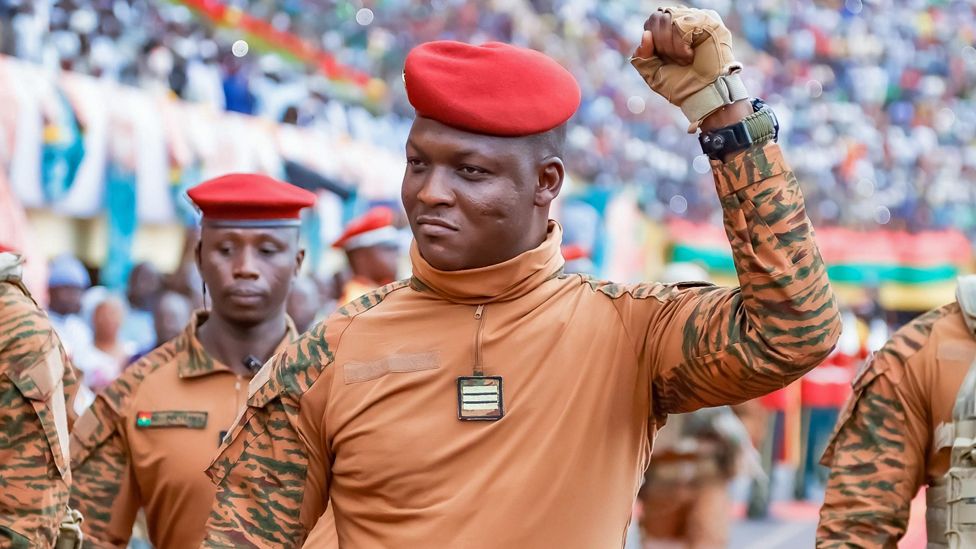Capt Ibrahim Traoré: The Rising Star of Burkina Faso
At just 37 years old, Captain Ibrahim Traoré has emerged as a charismatic figure in Burkina Faso, capturing attention both domestically and across Africa. His leadership style is characterized by a strong anti-Western stance, positioning him as a proponent of pan-Africanism aimed at liberating his nation from perceived neo-colonial influences.
A New Era of Leadership
Taking control in a coup in 2022, Traoré quickly established a strategic partnership with Russia, distancing the country from its former colonial ruler, France. His administration has introduced leftist economic policies aimed at bolstering national control over resources. A state-owned mining company has been created, demanding that foreign entities provide a 15% stake in local operations and share expertise with the Burkinabé workforce.
Strategic Economic Initiatives
Under Traoré’s directive, the junta is focused on transforming Burkina Faso’s gold industry. The government is not only developing a gold refinery but is also establishing national gold reserves for the first time.
| Policy Initiative | Impact |
|---|---|
| Partnership with Russia | Increased military and economic support |
| Creation of State-Owned Mining Company | Enhanced local ownership and skill development |
| Nationalization of Gold Mines | Stronger control over national resources |
Rising Popularity
Traoré’s rhetoric has struck a chord with many, inspiring a wave of admiration across the continent. According to experts, his approach resonates with youth disillusioned by traditional democratic structures that have not fulfilled their promises. Research indicates a growing skepticism towards Western-style democracy among African states, further fueling Traoré’s appeal.
International Relations and Criticism
Despite his popularity, Traoré’s government faces challenges, including persistent issues related to Islamist insurgencies and internal dissent. His crackdown on opposition voices has raised concerns about democratic principles.
Moreover, global responses to his regime have been mixed. French President Emmanuel Macron has criticized Traoré’s alignment with Russia, suggesting it reflects a dangerous blend of neo-imperialism and self-proclaimed pan-Africanism.
Conclusion
The trajectory for Captain Ibrahim Traoré remains uncertain as he navigates challenges both domestically and internationally. His youthful charisma and radical reforms have indeed left a mark, but the long-term sustainability of his leadership will depend on addressing key issues such as security, governance, and the socio-economic needs of the Burkinabé people.


